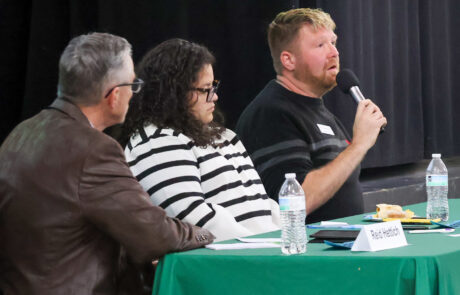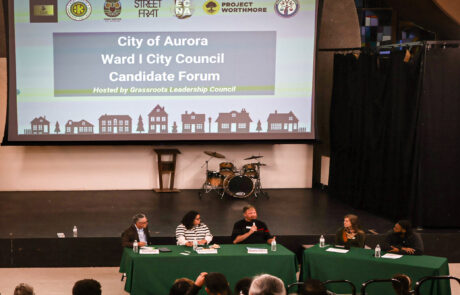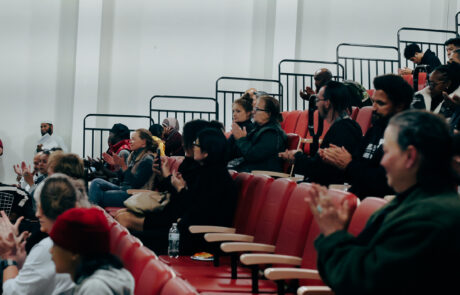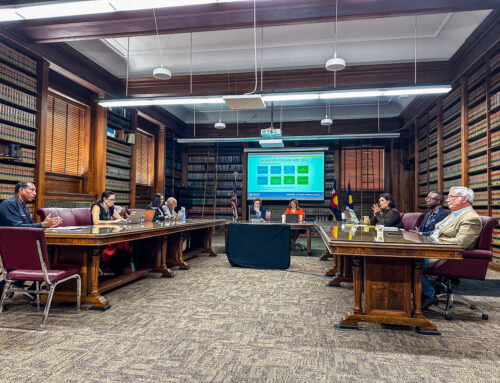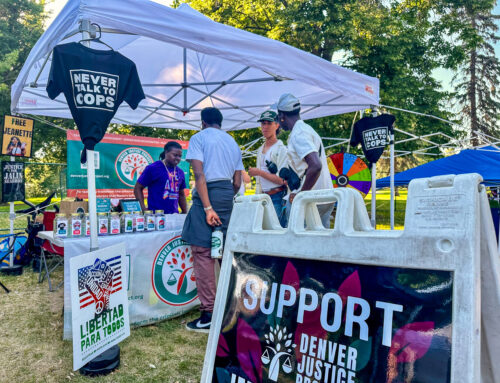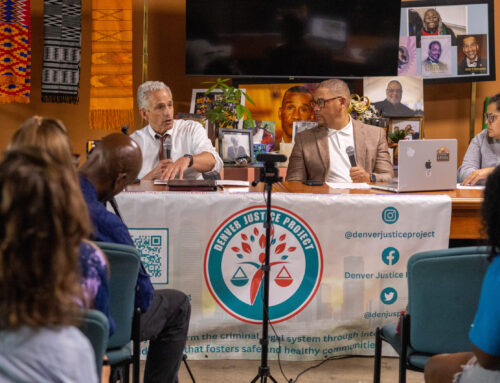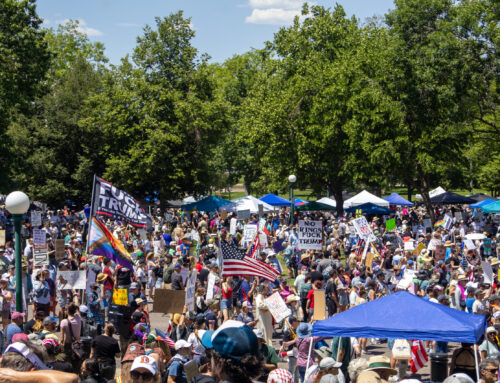On Monday, October 6th, the Denver Justice Project in collaboration with our community partners—East Colfax Community Collective, Food Justice Northwest Aurora, East Colfax Neighborhood Association, Street Frat, and Project Worthmore—co-hosted the Aurora Ward 1 City Council Candidate Forum at the Village Exchange Center, bringing together residents, small business owners, and community organizations to engage with the candidates for Aurora’s Ward 1 City Council seat.
Candidates Stephen Elkins, Reid Hettich, and Gianina Horton answered questions from both residents and local organizations, addressing issues central to the future of Ward 1. Much of the discussion centered on the ongoing redevelopment of the East Colfax corridor, and the pressing concerns around gentrification, displacement, and equitable investment. Residents and small business owners raised critical questions about who redevelopment will truly serve, emphasizing the need for policies that protect the people who live and work in Northwest Aurora today.
Public safety emerged as another key theme of the evening, with residents raising concerns about the Aurora Police Department’s ongoing violence against community members and questioning whether the current consent decree is bringing meaningful change. Candidates were also asked to share their positions on non-police alternatives, such as the Aurora Mobile Response Team, and to address the City’s collaboration with federal agencies, particularly ICE.
When it came to public safety, Elkins spoke to strengthening the Aurora Police Department through increased staffing, visible patrols, and training, positioning these as tools to rebuild community trust. Hettich, drawing on his background in public safety oversight, emphasized a more collaborative and preventative approach, highlighting the need for partnerships between residents, city agencies, and first responders. Horton spoke to history serving on the Aurora Community Advisory Council, and called for systemic accountability, advocating for stronger oversight, transparency, and investment in non-police response including mental health and crisis intervention services.
On housing and development, all three candidates recognized the challenges Aurora residents face amid rapid redevelopment along the East Colfax corridor. Elkins drew on his background in community planning, emphasizing the need to expand the overall housing supply, promote balanced development, and strengthen relationships between landlords and tenants. Hettich spoke to the importance of revitalization that benefits current residents, not just developers, by preserving affordability and protecting the neighborhood’s diversity. Horton called for stronger tenant protections, equitable zoning reform, and meaningful inclusion of residents in redevelopment planning and decision-making.
Regarding immigration and community trust, Hettich and Elkins largely centered on safety and stability for all residents, while Horton spoke directly to protecting immigrant communities from federal overreach and ensuring Aurora remains a city where newcomers can thrive without fear.
The evening was a powerful reminder that democracy begins at the neighborhood level. The conversation made clear that while the candidates approach these issues from different perspectives, they each recognize the urgency of shaping Ward 1’s future in ways that preserve its diversity, protect long-time residents, and ensure everyone has a voice in decisions that affect their lives and community.

